

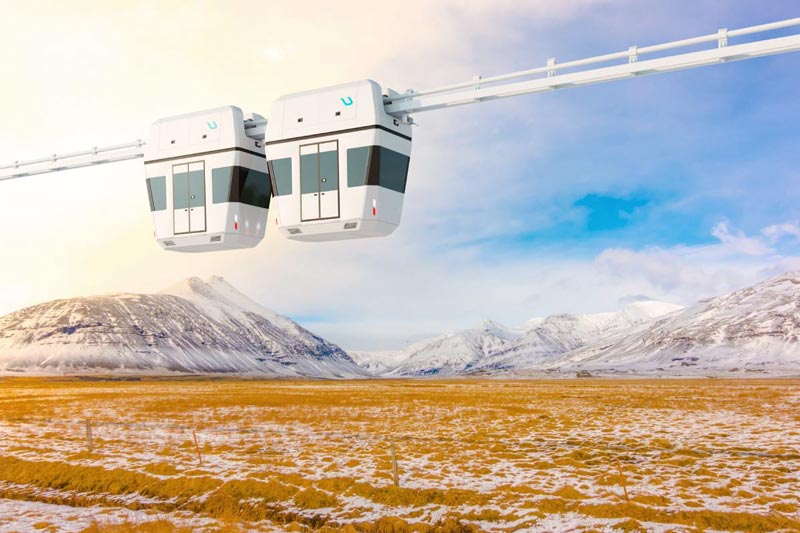
uST transport moves above ground and has a high speed. It is efficient, economical, and environmentally friendly, while the string rail overpass supports occupying minimal space. Due to these characteristics, UST Inc.’s complexes can be effectively applied in many locations. For example, overpass transport can relieve traffic congestion in megacities and optimize cargo transportation at enterprises. Where else can uST complexes be used? Read on to find out.
Roads in nature reserves and national parks cause damage to the ecosystem: they change the terrain, divide animal habitats, pollute the air, and reshape the established air flow movement map.
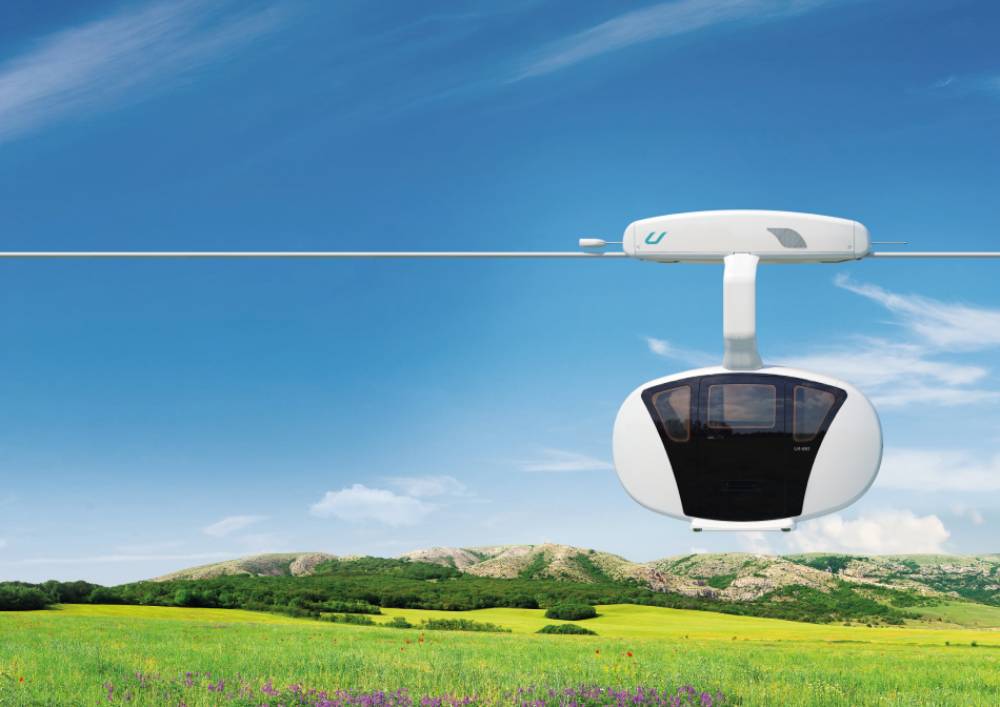
The construction of uST complexes does not require mass deforestation or landscape changes, as the track structure is located above the ground, and the supports occupy minimal space. The rolling stock (uPods) operates on electricity and does not emit harmful substances into the atmosphere. All this allows preserving nature in its original condition.
uST complexes will provide fast movement across large industrial sites, campuses, business and shopping centers. Employees and visitors will be able to move easily between different areas, reducing travel time and not interfering with ground-level traffic. This transport system is ideal for moving cargo at factories with remote buildings.
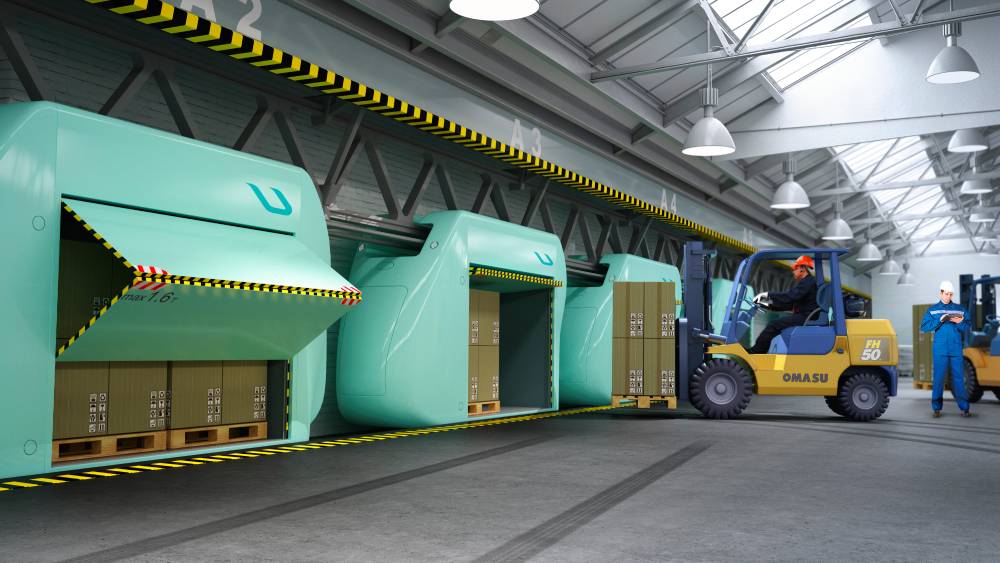
Pendular migration is the regular, often synchronized movement of people from one settlement to another for work, study, etc. It is most acute in megacities, where it heavily loads the transport system. The large flow of cars causes traffic jams, increasing travel time.
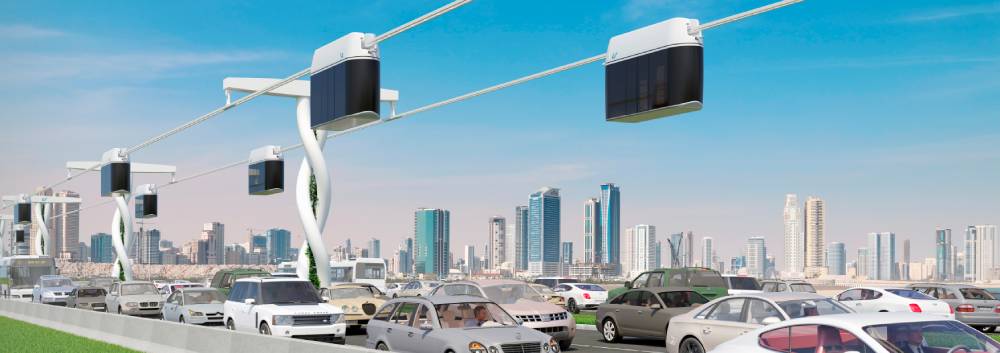
The introduction of uST complexes will provide uninterrupted communication at speeds of up to 150 km/h. Traffic flows will be redistributed by moving passenger transportation to a separate space off the ground. There will be fewer traffic jams and accidents during rush hours.
The uST complex will be relevant in places where crossing a canyon, river, or swamp is necessary to move from one point to another. Traditional transport in this case requires expensive bridges and culverts.
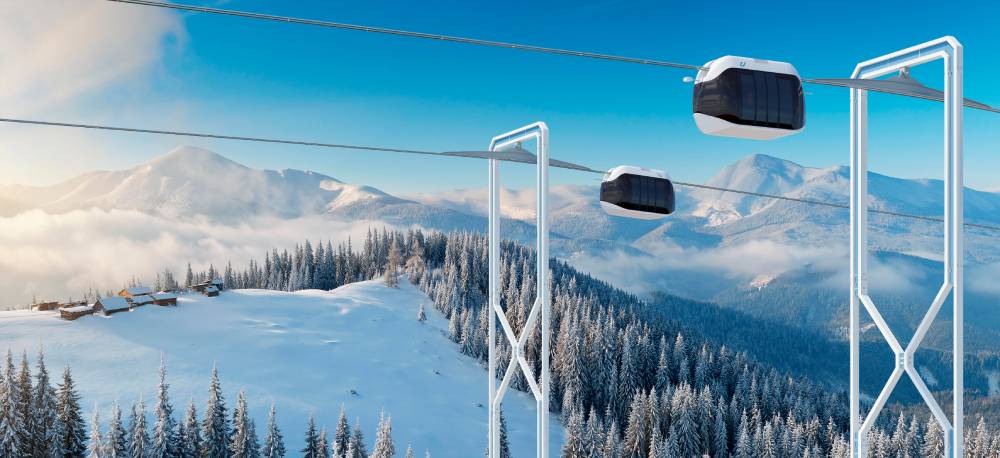
The distance between the supporting towers of the uST complex reaches 2 km or more, which means that a bridge is not needed to cross, for example, a river. The supports are less material-intensive, are resistant to floods and earthquakes, and can be installed on any type of soil. uPods can overcome slopes of up to 15%, and in a special configuration – up to 50%. At the same time, the construction of the uST complex will be cheaper than the construction of a cable car or a light rail overpass.
The uST transport system will reduce the cost of long-distance cargo transportation. Today, intermodal and multimodal transport depends entirely on the available infrastructure—the number of transshipment terminals, road networks, and the frequency of shipments. High port congestion and low railroad capacity increase the material and time costs of transportation: you have to pay for long-term storage of cargo. Moreover, due to uneven cargo flow, empty containers accumulate at some transshipment points, while others lack them.
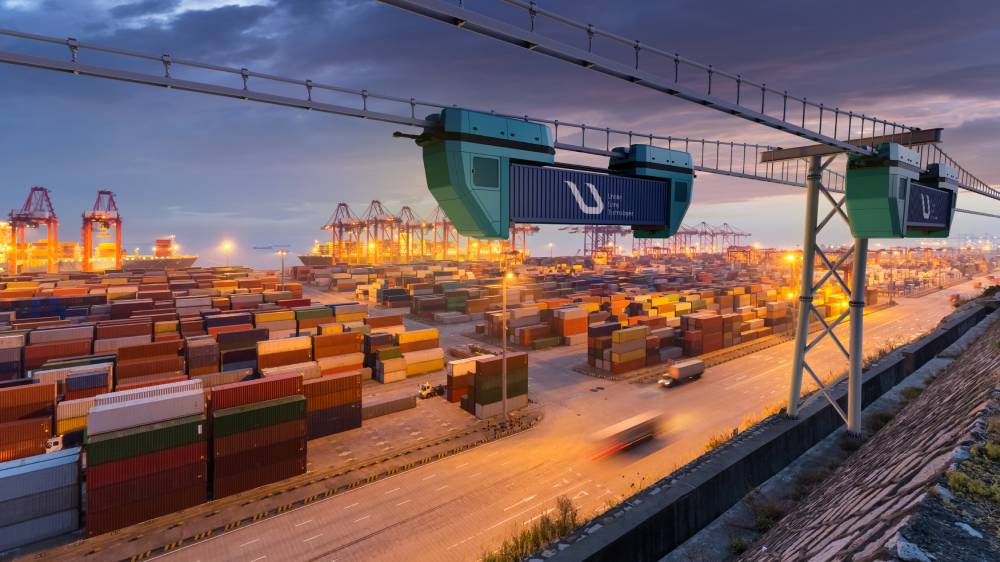
The use of uPods will allow replacing combined transport, reduce delivery time and costs. For example, the uCont can move cargo containers 20 and 40 feet long at speeds of up to 100 km/h along the shortest route. Loading and unloading at industrial facilities, remote areas, and seaports is automatic, saving time and resources. The number and interval of uPods are adapted to the cargo flow, which means that there will be neither excessive congestion nor downtime.
Economically important areas often have challenging conditions: severe frosts, heavy precipitation, and frozen soils. The operation of traditional transport here is difficult, requires high energy consumption and constant repair costs. And it is expensive to build overland routes: high embankments, overpasses, frost protection technologies, and complex engineering solutions for solid foundations are required.
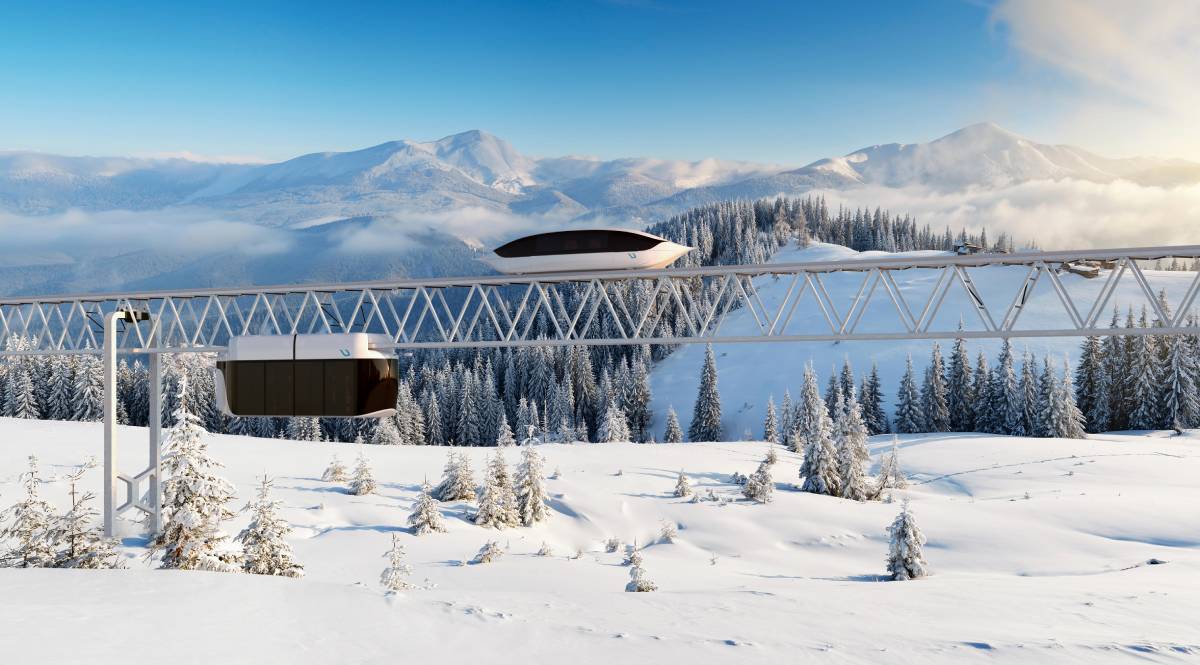
The uST complex is adapted to such conditions. It can be built even in the permafrost areas using special thermo-piles. The uST overpass is resistant to snow drifts and floods. Precipitation does not accumulate on the narrow rail and the ice crust is cracked under the steel wheels. Low temperatures will not interfere with the uPods’ power supply due to its own battery power.
uST technologies can overcome the transportation problems in many facilities and areas where the construction of ground roads is difficult, and the use of cars and trains is unproductive and expensive. Universal transport and infrastructure complexes will enable fast, cost-effective and environmentally friendly transportation in a wide range of areas, from nature conservation zones to industrial facilities.
This form asks for your consent to allow us to use your personal data for the reasons stated below. You should only sign it if you want to give us your consent.
Who are we?
The name of the organisation asking you for consent to use your information is:
Global Transport Investments
Trident Chambers, P.O. Box 146, Road Town
Tortola
British Virgin Islands
We would like to use the following information about you:
Why would we like to use your information?
Global Transport Investments would like to send this information to company registry, inform you about its news, for refund purposes.
What will we do with your information?
We store your name, address, ID Data, date of birth into company registry. We will share your e-mail & phone number with IT Service (https://digitalcontact.com/), SMS Center (http://smsc.ru). They will add your details to their mailing list and, when it is news update, they will send you an email or sms with details. We store your credit card number for possible refunds.
How to withdraw your consent
You can withdraw the consent you are giving on this form at any time. You can do this by writing to us at the above address, emailing us at the address: [email protected] or by clicking on the unsubscribe link at the bottom of emails you receive.
This privacy notice tells you about the information we collect from you when you sign up to receive our regular newsletter via our website. In collecting this information, we are acting as a data controller and, by law, we are required to provide you with information about us, about why and how we use your data, and about the rights you have over your data.
Who are we?
We are Global Transport Investments. Our address is Trident Chambers, P.O. Box 146, Road Town, Tortola, British Virgin Islands. You can contact us by post at the above address, by email at [email protected].
We are not required to have a data protection officer, so any enquiries about our use of your personal data should be addressed to the contact details above.
What personal data do we collect?
When you subscribe to our newsletter, we ask you for your name and your email address.
Why do we collect this information?
We will use your information to send you our newsletter, which contains information about our products.
We ask for your consent to do this, and we will only send you our newsletter for as long as you continue to consent.
What will we do with your information?
Your information is stored in our database and is shared with with IT Service (https://digitalcontact.com/), SMS Center (http://smsc.ru). It is not sent outside of the Euro. We will not use the information to make any automated decisions that might affect you.
How long do we keep your information for?
Your information is kept for as long as you continue to consent to receive our newsletter.
Your rights over your information
By law, you can ask us what information we hold about you, and you can ask us to correct it if it is inaccurate.
You can also ask for it to be erased and you can ask for us to give you a copy of the information.
You can also ask us to stop using your information – the simplest way to do this is to withdraw your consent, which you can do at any time, either by clicking the unsubscribe link at the end of any newsletter, or by emailing, writing us using the contact details above.
Your right to complain
If you have a complaint about our use of your information, you can contact the Information Commissioner’s Office.
Rate and Comment
You can assess the importance of a particular publication and the level of its preparation. Share your opinion in the comments!